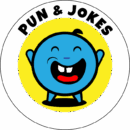IntroductionAs adults, we appreciate humor that resonates with our experiences and interests. If you have a love for the English language and a penchant for wordplay, these jokes are tailor-made for you. Let’s delve into a world of linguistic hilarity that’s sure to bring smiles and sophisticated chuckles.Read More: Jokes About English For StudentsJokes Adult English
Why did the comma break up with the period? It needed space.What’s the English teacher’s favorite crime? Syntax error!Why did the word “dictionary” get invited to the party? It had all the definitions for a good time.What’s the poet’s favorite type of footwear? Haiku-s.Why are puns like poetry? Because they rhyme with groan-y!What did the verb say to the noun at the party? Let’s dance, and make a sentence!Why did the linguist become a gardener? They wanted to cultivate their language roots.What’s a word’s favorite kind of party? A synonym roll.Why was the book so good at making friends? It had a great cover!What’s the editor’s favorite type of sandwich? A well-constructed one!Why did the adjective feel so confident? It was sure of itself.What’s a linguist’s favorite place in a mall? The syntax!Why did the letter A go to therapy? It had separation anxiety.What do you call a group of musical letters? A consonant choir.Why was the dictionary so calm? It had a lot of “definitions” for stress.What’s the writer’s favorite type of weather? Prose-perous!Why did the sentence go to jail? It was serving time for bad punctuation.What do you call a fake noodle? An impasta!Why are metaphors like mirrors? They both reflect deeper meanings.What’s a language’s favorite type of music? Synth-ax beats!Why did the poet bring a ladder to the poetry reading? To reach the high verse.What did the spelling bee champion say to the defeated bee? Bee-lieve in yourself.Why did the word “assertive” get invited to the meeting? It made its presence known.What’s the difference between a cat and a comma? A cat has claws at the end of its paws, and a comma is a pause at the end of a clause.Why was the grammar book so suspenseful? It had too many cliffhangers.Why did the dictionary go on a diet? Too many empty calories—lots of extra words!What’s an English teacher’s favorite coffee? A synonym roll, because it adds richness to their day!Why did the letter C feel left out? It was always in the shadow of its cooler cousin, S.How did the poet propose? With a rhyme and a ring—it was truly verse-atile!What did the preposition say before a date? “I’m all about relationships—around, under, and through!”
Why did the word “allegro” break up with “staccato”? Their relationship had no tempo!What’s the novel’s favorite genre of music? Prose and cons!Why was the novel so good at multitasking? It could handle multiple plots simultaneously.What did the semicolon say to the period? “You end sentences, but I pause them; we make a great team!”Why did the letter Q go to therapy? It felt overshadowed by its overachieving sibling, U.What did the sentence say when it got an award? “I’d like to thank my subject, predicate, and the Oxford comma!”Why did the poet become a chef? They wanted to simmer their emotions into stanzas.What’s a linguist’s favorite dessert? Syntax trifle—a layer of syntax, a layer of grammar, and a sprinkle of semantics!Why was the punctuation mark unhappy? It felt it had too many points in life.What did the adjective say to the noun at the bar? “You’re looking very substantive tonight.”Why was the sentence always late? It had too many clauses to get through!What’s the palindrome’s favorite kind of humor? A dad joke—equally funny backward and forward!Why did the spelling bee contestant bring a broom? To sweep the competition!What’s the novelist’s favorite type of gardening? Plot planting!Why did the word processor go to therapy? It had too many issues with commitment—always changing fonts!What’s the poet’s favorite kind of seafood? Rhyme chowder!Why was the thesaurus so laid-back? It was at ease with itself.What did the verb say to the direct object? “You complete me.”Why did the pun go to school? It wanted to become a pun-dit!What did the poet say to their pen? “You’ve got the write stuff!”Why did the grammarian become a detective? To solve the case of the missing Oxford comma!What’s the noun’s favorite exercise? Planking—keeping things in place!Why did the adjective visit the beach? It wanted to be beside itself.What did the verb say during the argument? “I tense up when things get heated!”Why did the novelist break up with the poet? They couldn’t find a common narrative.What did the syllable say to its friends? “Let’s stick together and make some words!”Why did the consonant join the orchestra? It wanted to be in harmony with the vowels.What did the sentence say at the party? “I’ve got the perfect structure for this occasion!”Why did the linguist go to the bookstore during a storm? They wanted to find some good cover!What’s the novelist’s favorite kind of party? A character development soirée!
Are these jokes suitable for English enthusiasts of all levels?
Absolutely! They cater to a range of language lovers, from novices to seasoned wordsmiths.
Can I share these jokes in professional settings?
While humor is subjective, these jokes are designed to be light-hearted and suitable for various settings, including professional ones.
Do I need an advanced understanding of English to enjoy these jokes?
Not necessarily. While some jokes play with linguistic nuances, they are crafted to be enjoyable for a broad audience.
